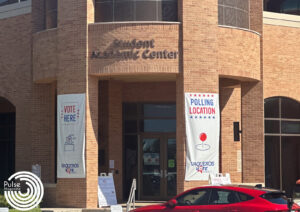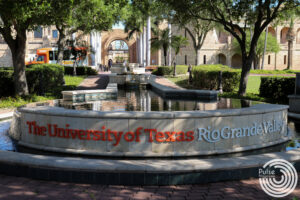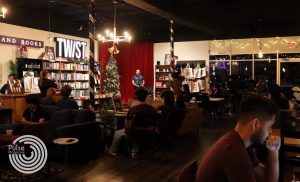On a Mission
In 2018, the Trump administration began employing a policy called “metering”, which limits the number of people who can request asylum at the U.S.-Mexican border each day. After it was implemented, hundreds of thousands of refugees sought port of entry areas (POE), waiting for their opportunity to begin their new life in the United States. San Luis Rio Colorado, a POE city located at the Mexico side of the Arizona border, is one of many borderland regions affected by the Trump administration’s policies. The individuals and families denied entry to the U.S. are in search of safety resources and are at risk for continued violence against them. Jean Sicurella, the co-founder of a charity organization called Misión de Caridad, is sympathetic towards the women and children whose dire circumstances cause them to flee victimization at home and come to a foreign country.
“I have a passion for making sure that those that are most vulnerable have the resources and the opportunity,” Sicurella said.
Intending to help refugees become independent and self-sufficient in Mexico, the organization helps people who are seeking asylum in Mexico and cannot enter the U.S. with humanitarian relief and resources to rebuild their lives. Asylum seekers from Central America and southern parts of Mexico continue migrating towards the U.S. border by foot and migrant caravans. According to the USA for United Nations Refugee Agency (UNRA), Central American countries have experienced a dramatic increase in violence, causing the number of people to flee from Central America to grow by ten times in the past five years. Anne-Marie Grey, the executive director and CEO of USA for UNRA, hopes asylum seekers fleeing their home countries escape devastating circumstances of food and shelter insecurities and dangers of gang-related violence. The refugees are ready to look forward and never look back.
“We [Misión de Caridad] were noticing that people were living on the border wall,” Sicurella said. “They probably didn’t expect that they were going to wait at the border for an additional, however many, months.”
Misión de Caridad was founded on Feb. 1, 2019, in San Luis Rio Colorado. The group provides several programs for refugees, ranging from health, educational, and entrepreneurial. These opportunities help lift some refugee families out of poverty. The organization also empowers refugees with job skills and education through tutoring and enrichment. However, after the coronavirus pandemic hit, Misión de Caridad could not provide these programs because of social distancing guidelines and safety precautions.
“We can’t meet face-to-face and we can’t have large groups, but the need is still very real,” Sicurella said. “We go into the areas where they live on the border in San Luis Rio Colorado and we provide them with healthy groceries.”
Misión de Caridad is also changing the standard of feeding refugees by providing typically unattainable food. This is accomplished by the organization’s Feed-a-Family program. The Misión de Caridad team and its volunteers delivers two weeks’ worth of groceries and meals to “meet the needs of the poorest families,” according to its website.
“When you see food programs that help people that have insecurities, they tend to be very carb focused with rice, beans and canned goods,” the co-founder said. “We not only want to prevent them from starving, but we want to be able to get them moving towards a lifestyle of healthy eating.”
To house and offer these programs, Misión de Caridad’s has a facility called Casa Esperanza. Once the pandemic is over, the facility will serve to provide health, educational, and entrepreneurial programs, childcare, a kitchen and dining common area, staff apartments, laundry, showers, to name a few.
“We feel like this is a model that can be replicable,” Sicurella said. “A model of creating self-sufficiency and self-sustainability is really important. If we don’t solve the systemic issues, we’re not going to get them out of poverty.”
Misión de Caridad utilizes its base of donors in the U.S. to fund its non-profit in Mexico, accepting donations on their website. They continue to evaluate what is going on at the border, seeing what needs to be done and where. The organization’s team in Mexico is made up of 25 volunteers and an executive director; it has volunteers around the U.S.
“We spent the first year for organization, just listening,” Sicurella said. “We did not establish any programs until we listened to the people and what their concerns were.”
One of Misión de Caridad’s main concerns is the health of the farmworkers and children within the pockets of poverty. Since the COVID-19 outbreak, Misión de Caridad’s began providing masks for them and teaching them about the pandemic to promote safety during this major health crisis.
“Because they don’t have the healthcare resources, if they get sick [from COVID-19] and need care, chances are they won’t survive if they need the kind of care to get their health to a high level,” she said.
Sicurella looks forward to the day when the pandemic is over for the organization to reach its goals and to see the children’s faces lighten up with excitement.
“I look forward to the day where that we can get them all in school and learning,” she said. “I look forward to the day where we can lift them out of poverty and impact the next generation. I can only imagine how much more and how much better they can do if they could only be given some opportunities. They were born into poverty.”
If you are interested in helping Misión de Caridad with its mission to help provide protection, shelter and literacy and wellness resources, visit its website.








